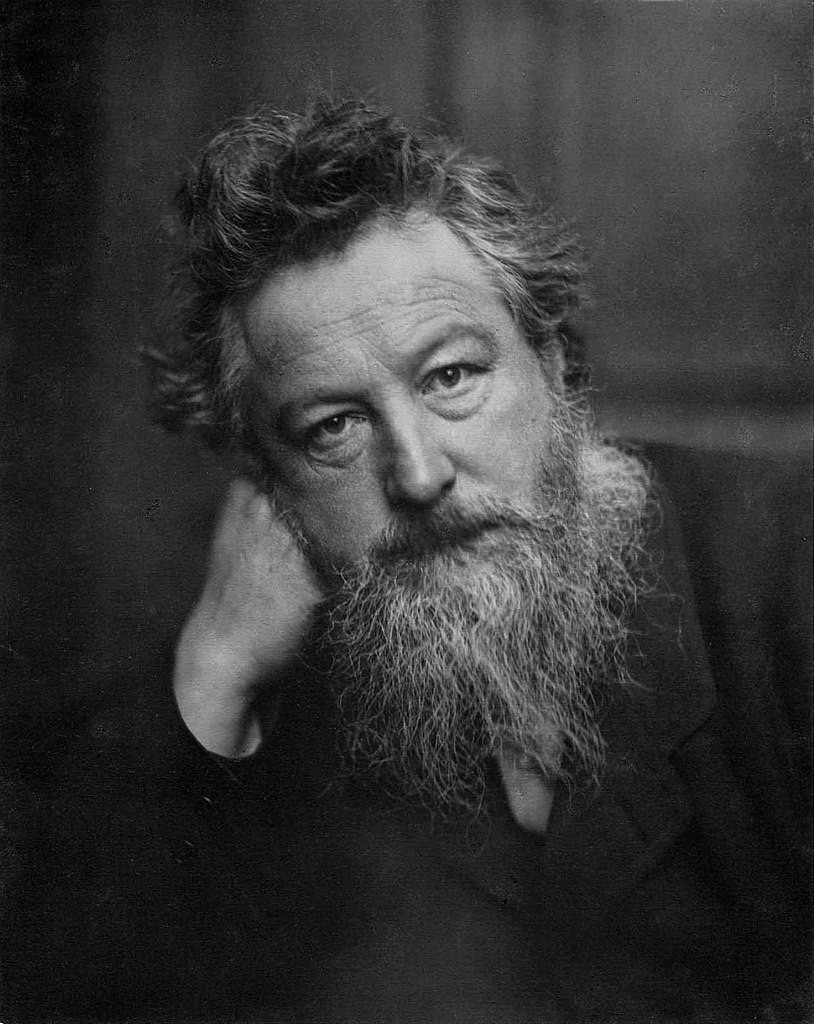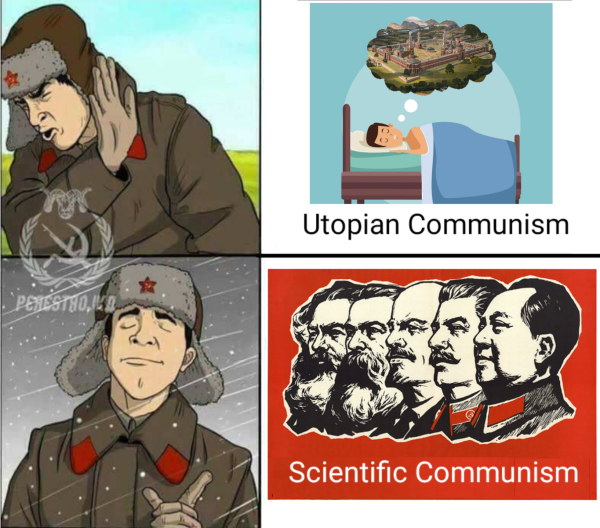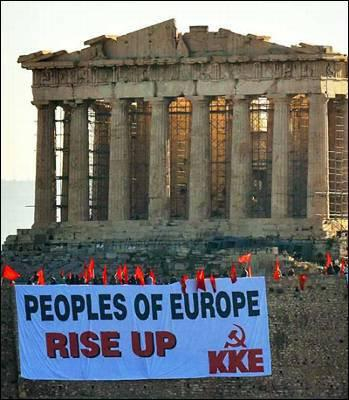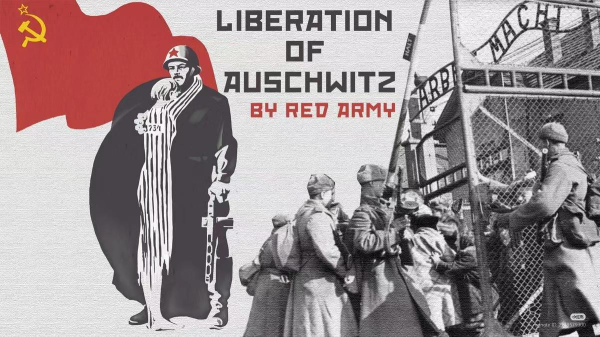Suche
Beiträge, die mit socialism getaggt sind
#workingclass #LaborHistory #williammorris #anarchism #socialism #writer #author #novel #books @bookstadon
Utopian Communism (a.k.a., Libertarian Communism, a.k.a., Anarcho-Communism): the exact opposite in every way. It lacks a scientific basis, relies on idealism instead of material conditions, and, as a result, is wholly disconnected from reality.
#communism #anarchism #socialism
#anticapitalism #quotes #anticapitalistquotes #capitalism #banks #eattherich #feedthepoor #socialism #communism #anarchism #activism
Any socialist movement in the global south: There has never been a better time than today. America isn’t paying attention anymore. Do it!
#usaid #socialism #politics
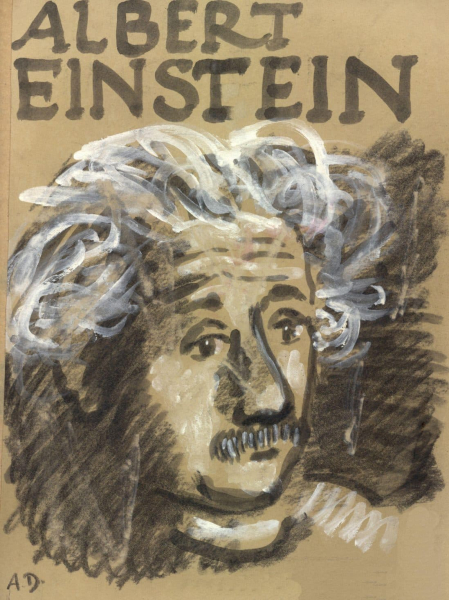
Einstein’s “Why Socialism?” and ‘Monthly Review’: A Historical Introduction
For our seventy-fifth anniversary issue, John Bellamy Foster revisits the legacy of Albert Einstein and his deep connections to Monthly Review…John Bellamy Foster (Monthly Review)
#socialism #communism #capitalism #anarchism
#Anarchy #Anarchism #Socialist #Socialism #Lebanon #Israel #War #History #Politics #Economics #Philosophy
https://www.youtube.com/watch?v=vaJ4uz5_7vA
- YouTube
Auf YouTube findest du die angesagtesten Videos und Tracks. Außerdem kannst du eigene Inhalte hochladen und mit Freunden oder gleich der ganzen Welt teilen.www.youtube.com
#Socialism
#WealthInequality
#climatechange #europe #socialism #Ukraine #music #liverpoolfc
https://jacobin.com/2025/02/anvil-magazine-midwest-communism-conroy
#USA #Midwest #Missouri #Marxism #DemocraticSocialism #Socialism

Anvil, the Forgotten Magazine of Heartland Marxism
Printed out of a cattle barn in Minnesota, Anvil published some of the biggest leftist writers of the 1930s, including Richard Wright and Langston Hughes.jacobin.com
If we consider the history of human civilization through the eyes of an engineer, it looks extremely logical and slender. The whole history is an evolutionary development of new types of energy, energy resources and technologies of their extraction, processing and utilization. From human muscle power to the muscle power of domestic animals, to the use of wind and flowing water energy, to the energy of hot springs, to the energy of chemical reaction of combustion using first different types of wood, peat, then coal, oil, to the conquest of the laws of electrodynamics, to the use of natural gas and to the current peak of the level of energy development - to the energy of the atomic nucleus. What kind of -isms happened along the way? Feudalism, capitalism, imperialism, socialism and capitalism again? It is absolutely indifferent, just white noise, that's all. Only the pace of development of these technologies is important - after the slumber of the first 18 centuries AD, the pace began to pick up, which was maximum during the years of planned development due to state efforts. This -ism we call socialism, so we can simply fix: since socialism gave the maximum rate of development of the energy sector, this economic and political system is optimal for the energy sector.
The peak of energy development in the USSR, which, like modern Russia, was the northernmost country in the world, was that its electricity and heat were the cheapest on the planet. Socialism was removed - came the notorious adjustment of energy tariffs every year and a half. Rational? No. No, because it hinders the development of living standards, hinders the development of the economy in its entire complex - in industry, in agriculture, in transportation. I'm not good at philosophy and political science, but I know for sure: centralized long-term planning was optimal for the development of the energy sector and, consequently, civilization.
#Russia #USSR #soviet #planning #economy #enegry #socialism #capitalism #history #study for #future
Kennedy Center says #J6 Prison Choir (🤣) is not a 'confirmed event,' despite what #SteveBannon says
https://www.latimes.com/entertainment-arts/story/2025-02-21/steve-bannon-j6-prison-choir-cpac-kennedy-center Economically desperate Americans here https://archive.ph/https://www.washingtonpost.com/business/2021/02/10/capitol-insurrectionists-jenna-ryan-financial-problems/
@LATimes @entertainment-LATimes
@blackvoices
@politics @palestine@a.gup.pe @palestine@lemmygrad.ml @gazawatch @flawed @lebanon @irannachrichten @yemen
#tiktok
#blackmastodon
#canada
#germany
#eu
#uk
#africa
#democracy
#socialism
#anarchism
#antifascism
#resistance
#humanrights
#security
#safety
#unitedstates
#propaganda
#media
#journalism
#china
#russia
#hasbara
@blackmastodon
The editorial team shares egalitarian and #anticapitalist views. Therefore, in our publications, we discuss how to transform #society so that there is no place left for exploitation, #inequality, and #discrimination.
Follow us and share our posts!
#commons_journal #introduction #socialism #Ukraine #progressive
#adhd
#amd
#anime
#audhd
#cardfightvanguard
#foss
#jrpg
#kde
#leftist
#linux
#manga
#neurodivergence
#neurodivergent
#pcbuild
#pcmasterrace
#philosophy
#politics
#science
#socialism
#socialist
#tcg
#tech
#vtuber
#wutheringwaves
РАЗРУШАЛИ ЛИ БОЛЬШЕВИКИ ИНСТИТУТ СЕМЬИ?
Недавно Путин высказался следующим образом:
«Теперь по поводу того, что изначально после 1917 года вся деятельность государства была направлена на разрушение семьи, — это не совсем так. ВНАЧАЛЕ ДЕЙСТВИТЕЛЬНО ТАК И БЫЛО. Это в примитивном виде излагалось как обобществление женщин, но у людей с примитивным социалистическим сознанием. А у элиты совсем по-другому, у элиты это было основано на положениях Маркса, Энгельса, в том числе на работе Энгельса „О семье, частной собственности и государстве“. В ней он писал, что если строгая моногамия является верхом добродетели, то, безусловно, пальму первенства нужно отдать ленточной глисте, где в 40 тысячах её члеников располагается и мужской, и женский аппараты, и она всю жизнь только тем и занимается, что совокупляется сама с собой. ВОТ НА ЭТОМ И БЫЛО ОСНОВАНО НА ПЕРВЫХ ПОРАХ, ПОСЛЕ 1917 ГОДА, ОТНОШЕНИЕ К СЕМЬЕ. То есть свободная любовь пропагандировалась и практиковалась. Но позднее, мы знаем, как на парткомах и месткомах рассматривались семейные дела, как боролись за сохранение семьи. Это уже была совсем другая история. Так что и по ходу развития советского общества, и по ходу развития институтов государства отношение к семье тоже менялось. И здесь всё-таки с Вами трудно согласиться, что весь этот период всё было направлено на разрушение семьи. Мне кажется, что слишком радикально Вы высказались».
Аналогичную чепуху распространяют и на научных кафедрах, и в патриотических газетёнках. Ложь — принцип работы буржуазной пропаганды.
Нельзя не отметить, что фрагмент работы Энгельса с ленточной глистой так глубоко западает в душу всем филистерам, что кроме него они ничего не запоминают в работе классика. Тогда как в данном случае Энгельс высмеивает нелепые аргументы буржуазных «учёных», которые ВЫВОДИЛИ ИЗ МОНОГАМИИ ЖИВОТНОГО МИРА МОНОГАМИЮ ЧЕЛОВЕЧЕСКОЙ СЕМЬИ. Если бы Владимир Владимирович читал Энгельса внимательно, то чуть ниже он бы заметил следующие слова:
«Хотя сообщества животных и имеют известную ценность для ретроспективных умозаключений относительно сообществ людей, но эта ценность только негативная. У высших позвоночных животных известны, насколько мы знаем, лишь две формы семьи: многоженство и сожительство отдельными парами; в обоих случаях допускается лишь один взрослый самец, лишь один супруг. Ревность самца, одновременно скрепляющая и ограничивающая семью животных, приводит ее в противоречие со стадом; из-за этой ревности стадо, более высокая форма общения, в одних случаях прекращает свое существование, в других утрачивает сплоченность или распадается на время течки, а в лучшем случае задерживается в своем дальнейшем развитии. Одного этого достаточно для доказательства, что СЕМЬЯ ЖИВОТНЫХ И ПЕРВОБЫТНОЕ ЧЕЛОВЕЧЕСКОЕ ОБЩЕСТВО — ВЕЩИ НЕСОВМЕСТИМЫЕ, что первобытные люди, выбиравшиеся из животного состояния, или совсем не знали семьи, или, самое большее, знали такую, какая не встречается у животных».
Теперь посмотрим как большевики «разрушали семью».
Так, 18 декабря 1917 года был принят:
«Декрет о гражданском браке, о детях и о ведении книг актов состояния.
Российская Республика впредь признает лишь гражданские браки.
Гражданский брак совершается на основании следующих правил:
I. Лица, желающие вступить в брак, словесно объявляют или подают о том, по месту своего пребывания, письменное заявление в отдел записей браков и рождений при городской (районной, уездной или волостной земской) управе.
Примечание. Церковный брак, наряду с обязательным гражданским, является частным делом брачущихся.
II. Заявления о желании вступить в брак не принимаются: а) от лиц мужского пола ранее 18 лет, а женского — 16 лет от рождения. В Закавказье туземные жители могут вступать в брак по достижении женихом 16 лет, а невестою 13 лет; б) от родственников по прямой линии, полнородных и не полнородных братьев и сестер, — причем наличность родства признается также между внебрачным ребенком и его потомством с одной стороны и его отцом и его родственниками — с другой; в) от состоящих в браке, и г) от умалишенных.
III. Желающие вступить в брак являются в отдел записей браков и дают подписку в отсутствии перечисленных в ст. 2 сего декрета препятствий для вступления в брак, а также подписку в том, что они вступают в брак добровольно. Виновные в даче заведомо ложных показаний об отсутствии препятствий, перечисленных в ст. 2, привлекаются к уголовной ответственности за ложное показание, а сам брак их признается недействительным.
IV. По отобрании выше предусмотренной подписки, заведующий отделом записей браков заносит событие брака в книгу записей браков и затем объявляет брак вступившим в законную силу. При вступлении в брак бракосочетающимся предоставляется свободно определить, будут ли они впредь именоваться фамилией мужа или жены или соединенною фамилией.
В удостоверение события брака, брачущимся выдается незамедлительно копия свидетельства об их браке.
V. Жалобы на отказ в совершении брака или на неправильности записи приносятся, без ограничения срока, местному судье по месту отдела записей браков; определение же местного судьи по таковой жалобе может быть обжаловано в общем порядке.
VI. В случае, если прежние книги записей брака были уничтожены или иным путем погибли, или если по иной причине состоящие в браке лица не имеют возможности получить выпись о своем бракосочетании, — этим лицам предоставляется право подать заявление в соответствующий, по месту жительства обоих супругов или одного из них отдел записей браков о том, что они состоят в браке с такого-то времени. Такое заявление, подтвержденное, сверх подписки, предусмотренной ст. 4‑й сего декрета, еще подпискою супругов в том, что книга записей действительно погибла, или что они по иной уважительной причине не могут получить выписки о браке, служит основанием для записи брака вновь и для выдачи о том копии свидетельства.
О детях.
VII. Запись о рождении ребенка составляется тем же отделом записей браков и рождений по месту пребывания матери, причем о каждом рождении в книге записей рождений совершается особая запись.
VIII. О рождении ребенка отделу обязаны объявить или его родители, или один из них, или лица, на попечении коих, за смертью родителей, остался новорожденный, с указанием присвояемых ребенку имени и фамилии и с представлением двух свидетелей в удостоверение события рождения.
IX. Как книги записей браков, так и книги записей рождений, ведутся в 2‑х экземплярах, причем один экземпляр по окончании года пересылается для дальнейшего храпения -в соответствующий суд.
X. Дети внебрачные уравниваются с брачными относительно прав и обязанностей как родителей к детям, так и детей к родителям.
Отцом и матерью ребенка записываются лица, подавшие о том заявление и давшие соответствующую в том подписку.
Виновные в даче заведомо ложных показаний по содержанию сего привлекаются к уголовной ответственности за ложное показание, а сама запись признается недействительной. В случае неподачи отцом внебрачного ребенка указанного выше заявления, матери ребенка, опекуну его или самому ребенку предоставляется право судебным порядком доказать отцовство».
И где же тут «разрушение семьи»?
Более того, на следующий день был принят декрет о расторжении брака, а 18 сентября 1918 года принимается полноценный кодекс «Законов об актах гражданского состояния, брачном, семейном и опекунском праве».
Вместо уничтожения, разрушения, запрещения БОЛЬШЕВИКИ РАЗВИВАЮТ ИНСТИТУТ СЕМЬИ, ПРОВОЗГЛАСИВ СОЦИАЛИСТИЧЕСКУЮ СЕМЬЮ ВЫСШИМ ТИПОМ СЕМЬИ.
В 1926 году был принят новый кодекс. Наиболее существенным нововведением этого кодекса было придание правового значения фактическим брачным отношениям. Придавалось решающее значение не факту регистрации брака, а взаимному соглашению сторон. Важнейшим доводом в пользу придания правового значения фактическим брачным отношениям были статистические данные, свидетельствовавшие о том, что в незарегистрированных браках (их общее число составляло около 7% от всех браков), как правило, состояли женщины из наименее обеспеченных слоев населения, особенно нуждавшиеся в правовой защите. Часто такие женщины, брошенные фактическим супругом, оставались без средств к существованию, поскольку ни права на имущество, ни права на взыскание алиментов по закону не имели. Второй важнейшей новацией была замена режима раздельности супружеского имущества режимом общности. Это обосновывалось тем, что принцип раздельности не давал женщинам, не имевшим источника доходов, права на имущество семьи, поскольку всё имущество приобреталось на доходы мужа.
Ну и повышение возраста для женщин по понятным причинам.
Это и есть разрушение семьи? Почитайте внимательно, убедитесь, что Путин и научные работники буржуазной кафедры, пишущие про разрушение семьи, НАГЛО ВРУТ.
Или для Путина и ему подобных «разрушение семьи» это низвержение порядка правового неравенства в семье? Действительно, ведь в своде законов Российской империи указывалось, что «жена обязана повиноваться мужу своему, как главе семейства; пребывать нему в любви, почтении и в неограниченном послушании, оказывать ему всякое угождение и привязанность…» — вот такую семью Советская власть уничтожила путём отрицания, то есть развития всего положительного и отбрасывания всего реакционного. В строгом соответствии с диаматикой.
Кстати говоря, вопрос о равноправии женщин обсуждался в I, II и III Государственных думах, но так и не получил разрешения. Царское правительство упорно сопротивлялось распространению на женское население даже тех куцых гражданских прав, которые оно вынуждено было провозгласить земской реформой 1864 г. и Манифестом 17 октября 1905 г. Такое отношение к женщине было присуще не только царскому правительству и господствующим классам, но и значительной части трудящегося населения, особенно в деревне.
Женское неравноправие усугублялось огромным разрывом между общепризнанными достижениями передовой русской культуры того времени и духовной жизнью большинства населения, прозябавшего в темноте и невежестве. Дореволюционная Россия была страной массовой неграмотности. Особенно много неграмотных было среди женщин. По проведенному в 1908 — 1913 гг. обследованию в 12 губерниях европейской России, неграмотность сельского женского населения составляла от 74,1 (Московская губерния) до 95,2% (Пензенская губерния). Даже в Москве в 1912 г. 43,4% женщин не умели читать и писать.
Придумали вышеобозначенный пропагандистский миф о том, что большевики уничтожали семью, вовсе не путины. Ещё русско-германский буржуа Менерт писал:
«Большевики сразу же после революции повели борьбу с семьей… И все же русские, не будучи сверхцивилизованным народом, и поныне сохраняют еще, несмотря на все, что им пришлось пережить в последние десятилетия, естественную склонность к упорядоченным половым отношениям… Это не значит, что они (коммунисты) преодолели свою внутреннюю неприязнь к семье. Для них семья — это бельмо на глазу, и не только из-за ее консервативности. Их раздражает уже само существование этого единственного в стране не контролируемого ими института, самобытной и замкнувшейся в себе ячейки, инородного тела в государстве, которое во всех остальных отсеках контролируется сверху донизу».
Дадим краткий обзор марксистской позиции по семье на первой фазе коммунизма.
В одной из своих ранних работ, «К критике гегелевской философии права» (1843), К. Маркс писал:
«Лишь в гражданском обществе семейная жизнь становится жизнью семьи, жизненным проявлением любви. Сословие же землевладения представляет собой, напротив, варварство частной собственности против семейной жизни».
В первом в истории проекте программы коммунистов, составленном Энгельсом, «Принципах коммунизма» (1847) — в ответ на утверждения таких вот путиных XIX века, будто коммунисты хотят ввести общность жен, говорилось:
«Общность жен представляет собою явление, целиком принадлежащее буржуазному обществу и в полном объеме существующее в настоящее время в виде проституции. По проституция основана на частной собственности и исчезнет вместе с ней. Следовательно, коммунистическая организация вместо того, чтобы вводить общность жен, наоборот, уничтожит ее».
Этот тезис повторен и в «Коммунистическом манифесте» и в работе Энгельса «Происхождение семьи, частной собственности и государства», которой козырнул Владимир Владимирович.
О «планах» марксизма в отношении брака и семьи говорится следующее:
«Как только отпадут экономические соображения, вследствие которых женщины мирились с этой обычной неверностью мужчин, — забота о своем собственном существовании и еще более о будущности детей, — так достигнутое благодаря этому равноправие женщины, судя по всему прежнему опыту, будет в бесконечно большей степени способствовать действительной моногамии мужчин, чем полиандрии женщин».
Ленин писал, что марксизм противопоставляет проституированной буржуазной семье, распущенности и мимолётным связям «пролетарский гражданский брак с любовью».
Кроме того, Ленин решительно протестует против вульгаризации вопроса:
«Отношения между полами не являются просто выражением игры между общественной экономикой и физической потребностью. Было бы не марксизмом, а рационализмом стремиться свести непосредственно к экономическому базису общества изменение этих отношений самих по себе, выделенных из общей связи их со всей идеологией».
Таким образом, У МАРКСА, ЭНГЕЛЬСА, ЛЕНИНА НЕТ ДАЖЕ НАМЕКА НА ОТРИЦАНИЕ ИНСТИТУТА СЕМЬИ. Они отвергали лишь собственническую семью и торгашеский брак по расчету, требовали освобождения брачно-семейных отношений от извращающей их власти собственности и денег, боролись за равноправие женщин с мужчинами и за то, чтобы семья основывалась на любовных отношениях.
НИКТО В МИРЕ НЕ СДЕЛАЛ ДЛЯ ЛЮБВИ БОЛЬШЕ, ЧЕМ БОЛЬШЕВИКИ, ПОТОМУ ЧТО ИМЕННО ПРИ СОВЕТСКОЙ ВЛАСТИ ТРУДЯЩИЕСЯ БЫЛИ ОСВОБОЖДЕНЫ ОТ ГНЁТА КАПИТАЛА, ОСВОБОЖДАЛИСЬ ОТ ПОРОЧНОСТИ ТОВАРНО-ДЕНЕЖНЫХ ОТНОШЕНИЙ, В ТОМ ЧИСЛЕ ПОСРЕДСТВОМ ТОГО, ЧТО КАЖДЫЙ ЖИТЕЛЬ СССР ПОЛУЧАЛ ЖИЛЬЁ И РАБОТУ, А ЗНАЧИТ БЫЛ СВОБОДЕН ДЛЯ ВЫСТРАИВАНИЯ ОТНОШЕНИЙ НА ОСНОВЕ ВЫСШИХ ПРОЯВЛЕНИЙ ЛИЧНОСТИ — ДРУЖБЫ И ЛЮБВИ. СТРАНА ЛЮБВИ НАЗЫВАЛАСЬ СССР!
Персонально Коллонтай и другие отдельные писатели, которых и обсасывают всякие современные «учёные», были носителями вульгарных взглядов на семью. Их взгляды в политике большевиков не претворялись. В СССР издавалось много различной литературы, очень многие видные деятели, в том числе занимая высокие государственные и партийные посты, выступали в печати с ошибочными взглядами по разным вопросам, особенно в 1920-е, когда был настоящий разгул троцкизма и полутроцкизма во всех областях.
Все эти декреты о национализации женщин и заповеди половых отношений — фальшивки или дурацкие левые кривляния молодежи. Ленин по поводу левачества в этих вопросах говорил:
«Вы, конечно, знаете знаменитую теорию о том, что будто бы в коммунистическом обществе удовлетворить половые стремления и любовную потребность так же просто и незначительно, как выпить стакан воды. От этой теории „стакана воды“ наша молодежь взбесилась, прямо взбесилась. Эта теория стала злым роком многих юношей и девушек. Приверженцы ее утверждают, что теория эта марксистская. Спасибо за такой „марксизм“…».
Подобные теории раздували провокаторы и идиоты от левой фразы: троцкисты, анархисты и другие враги рабочего движения. Они и легли в основу буржуазной мифологии по этому вопросу.
#Russia #USSR #soviet #russian #history #family #bolsheviks #socialism #communism #marxism #Lenin #lang_ru #СССР #история
РАЗРУШАЛИ ЛИ БОЛЬШЕВИКИ ИНСТИТУТ СЕМЬИ?
РАЗРУШАЛИ ЛИ БОЛЬШЕВИКИ ИНСТИТУТ СЕМЬИ? https://prorivists.files.wordpress.com/2020/01/family.jpeg?w=1480&h=1164 Недавно Путин высказался следующим образом: «Теперь по поводу того, что изначально после 1917 года вся деятельность государства была напр…diaspora* social network
DID THE BOLSHEVIKS DESTROY THE INSTITUTION OF THE FAMILY?
Putin recently expressed himself as follows:
“Now regarding the fact that initially after 1917 all the activities of the state were aimed at the destruction of the family - this is not quite true. IN THE BEGINNING IT WAS INDEED SO. It was presented in a primitive form as the generalization of women, but to people with a primitive socialist consciousness. And the elite had a completely different idea, the elite had it based on the provisions of Marx, Engels, including Engels' work “On the Family, Private Property and the State”. In it he wrote that if strict monogamy is the top of virtue, then, of course, the palm of superiority should be given to the tapeworm, where in 40 thousand of its members there are both male and female apparatuses, and it spends its whole life only copulating with itself. THAT'S WHAT THE ATTITUDE TO THE FAMILY WAS BASED ON AT FIRST, AFTER 1917. That is, free love was promoted and practiced. But later, we know how family matters were considered at party committees and local committees, how they fought for the preservation of the family. It was already a completely different story. So as Soviet society developed, and as the institutions of the state developed, the attitude to the family also changed. And here, however, it is difficult to agree with you that everything during this period was aimed at destroying the family. It seems to me that you have expressed yourself too radically.
Similar nonsense is spread in scientific departments and in patriotic newspapers. Lies are the working principle of bourgeois propaganda.
It should not be overlooked that the fragment of Engels' work with the tapeworm is so deeply ingrained in the soul of all philistines that they do not remember anything in the work of the classicist except it. Whereas in this case Engels ridicules the ridiculous arguments of the bourgeois “scientists” who DETERMINE FROM THE MONOGAMY OF THE ANIMAL WORLD THE MONOGAMY OF THE HUMAN FAMILY. If Vladimir Vladimirovich had read Engels carefully, he would have noticed the following words just below:
“Although animal communities have some value for retrospective inferences about human communities, this value is only negative. In the higher vertebrates there are, so far as we know, only two forms of family known: polygamy and cohabitation in separate pairs; in both cases only one adult male, only one consort, is allowed. The jealousy of the male, which at the same time strengthens and limits the animal family, brings it into conflict with the herd; because of this jealousy the herd, a higher form of socialization, in some cases ceases to exist, in others loses its cohesion or disintegrates during heat, and at best is delayed in its further development. This alone is sufficient to prove that the FAMILY OF ANIMALS AND THE PERFECT HUMAN SOCIETY ARE IMPOSSIBLE THINGS, that primitive men, emerging from the animal state, either did not know a family at all, or, at most, knew one which is not found in animals.”
Now let's look at how the Bolsheviks “destroyed the family.”
Thus, on December 18, 1917 it was adopted:
“Decree on civil marriage, on children and on the keeping of registry books.
The Russian Republic shall henceforth recognize only civil marriages.
Civil marriage shall be performed on the basis of the following rules:
I. Persons wishing to marry shall verbally announce or submit a written application to the department of marriage and birth records at the city (district, county or volost zemstvo) administration at the place of their residence.
Note. Church marriage, along with compulsory civil marriage, is a private affair of the marrying couple.
II. Applications for marriage are not accepted: a) from males earlier than 18 years of age, and from females - 16 years of birth. In Transcaucasia, natives may marry when the groom is 16 years old and the bride is 13 years old; b) from relatives in the direct line, full-blooded and not full-blooded brothers and sisters, and the existence of kinship is also recognized between a child born out of wedlock and his offspring on the one hand and his father and his relatives on the other; c) from married persons, and d) from insane persons.
III. Those wishing to marry shall come to the marriage registry office and sign that there are no obstacles to marriage listed in Article 2 of this decree and that they are entering into marriage voluntarily. Those guilty of knowingly giving false testimony that there are no obstacles listed in Article 2 shall be held criminally liable for false testimony, and their marriage shall be declared null and void.
IV. Upon taking the aforementioned signature, the head of the marriage record department shall enter the event of the marriage in the marriage record book and then declare the marriage to be valid. At the time of marriage, the married couple is free to determine whether they will henceforth be called by the surname of the husband or wife or by a joint surname.
As proof of the marriage, the couple shall immediately receive a copy of their marriage certificate.
V. Complaints against the refusal to perform a marriage or against irregularities in the record shall be filed, without time limit, with the local judge at the place of the marriage record office; the local judge's ruling on such a complaint may be appealed in general.
VI. If the former marriage record books have been destroyed or otherwise perished, or if for any other reason the married persons are unable to obtain a record of their marriage, these persons are entitled to file a statement with the appropriate marriage record office in the place of residence of both spouses or one of them that they have been married since such and such a time. Such a statement, confirmed, in addition to the subscription provided for in Article 4 of this decree, by the signature of the spouses that the marriage record book has indeed perished or that they are unable to obtain extracts of the marriage for any other valid reason, shall serve as the basis for recording the marriage again and for issuing a copy of the certificate.
About children.
VII. The birth of a child shall be recorded by the same marriage and birth records department at the place of residence of the mother, and a special entry shall be made for each birth in the book of birth records.
VIII. The birth of a child must be announced to the department either by the parents or by one of them, or by the persons in whose care the newborn child has remained after the death of the parents, indicating the name and surname to be given to the child and presenting two witnesses to certify the event of birth.
IX. Both the books of marriage records and the books of birth records shall be kept in 2 copies, one copy of which shall be sent to the appropriate court for further storage at the end of the year.
X. Children born out of wedlock shall be equalized with married children with respect to the rights and duties of both parents to their children and children to their parents.
The father and mother of the child shall be registered by the persons who have applied for and subscribed to it.
Those guilty of knowingly giving false testimony on the contents of this statement shall be held criminally liable for false testimony, and the record itself shall be declared invalid. If the father of a child born out of wedlock fails to submit the above statement, the mother of the child, his guardian or the child himself shall have the right to prove paternity by judicial procedure.
And where is the “destruction of the family” in this?
Moreover, the next day a decree on the dissolution of marriage was adopted, and on September 18, 1918 a full-fledged code of “Laws on acts of civil status, marriage, family and guardianship law” was adopted.
Instead of destruction, destruction, prohibition, the BOLSHEVIKS DEVELOPED THE INSTITUTE OF THE FAMILY, PROVOSING THE SOCIALIST FAMILY A HIGH TYPE OF FAMILY.
In 1926, a new code was adopted. The most significant innovation of this code was to give legal significance to the actual marriage relationship. It was not the fact of registration of the marriage, but the mutual agreement of the parties that was decisive. The most important argument in favor of giving legal significance to de facto marital relations was statistical data showing that unregistered marriages (their total number amounted to about 7% of all marriages) usually consisted of women from the least wealthy strata of the population, who were particularly in need of legal protection. Often such women, abandoned by their de facto spouse, were left without means of subsistence, since they had neither the right to property nor the right to alimony under the law. The second major innovation was the replacement of the regime of separation of marital property with a regime of community. This was justified by the fact that the principle of separation did not give women who had no source of income the right to the family property, since all property was acquired with the husband's income.
And raising the age for women for obvious reasons.
Is this the destruction of the family? Read carefully, make sure that Putin and the scientific workers of the bourgeois department, writing about the destruction of the family, are blatantly lying.
Or for Putin and his kind “destruction of the family” is the overthrow of the order of legal inequality in the family? Indeed, in the code of laws of the Russian Empire it was stated that “a wife is obliged to obey her husband as the head of the family; to remain in love, honor and unlimited obedience to him, to give him every pleasure and affection...”. - This is the kind of family that the Soviet power destroyed by negation, i.e. by developing everything positive and discarding everything reactionary. In strict accordance with diamatics.
By the way, the question of equal rights for women was discussed in the I, II and III State Dumas, but was never resolved. The tsarist government stubbornly resisted extending to the female population even those meager civil rights which it was forced to proclaim by the zemstvo reform of 1864 and the Manifesto of October 17, 1905. This attitude toward women was inherent not only in the tsarist government and the ruling classes, but also in a large part of the working population, especially in the countryside.
Women's inequality was aggravated by the huge gap between the generally recognized achievements of the advanced Russian culture of the time and the spiritual life of the majority of the population, which lived in darkness and ignorance. Pre-revolutionary Russia was a country of mass illiteracy. Especially many illiterates were among women. According to a survey conducted in 1908-1913 in 12 provinces of European Russia, the illiteracy of the rural female population ranged from 74.1 (Moscow Province) to 95.2% (Penza Province). Even in Moscow in 1912. 43.4% of women could not read and write.
The above propaganda myth that the Bolsheviks destroyed the family was not invented by the Putins. Even the Russian-German bourgeois Menert wrote:
“The Bolsheviks immediately after the revolution waged a struggle against the family... And yet Russians, not being a super-civilized people, still retain today, despite all that they have had to endure in recent decades, a natural inclination to orderly sexual relations... This does not mean that they (the Communists) have overcome their inner dislike of the family. For them, the family is an eyesore, and not only because of its conservatism. They are irritated by the very existence of this one institution in the country that is not controlled by them, an original and self-contained unit, a foreign body in the state, which in all other compartments is controlled from top to bottom”.
Let us give a brief overview of the Marxist position on the family in the first phase of communism.
In one of his early works, “Toward a Critique of Hegel's Philosophy of Right” (1843), K. Marx wrote:
“Only in civil society does family life become the life of the family, the vital manifestation of love. The landed estates, on the contrary, represent the barbarism of private property against family life”.
In the first ever draft of the Communist program, compiled by Engels, “The Principles of Communism” (1847) - in response to the assertions of such 19th century poutines, as if the Communists wanted to introduce the community of wives, it was stated:
“The community of wives is a phenomenon that belongs entirely to bourgeois society and exists in its entirety at the present time in the form of prostitution. Prostitution is based on private property and will disappear with it. Hence, the communist organization, instead of introducing the community of wives, will, on the contrary, destroy it”.
This thesis is repeated both in the “Communist Manifesto” and in Engels' work “The Origin of the Family, Private Property and the State”, which Vladimir Vladimirovich trumped.
It says the following about Marxism's “plans” for marriage and family:
“As soon as the economic considerations, as a consequence of which women put up with this usual infidelity of men, - the concern for their own existence and even more so for the future of children - fall away, so the equality of woman, achieved thanks to this, will, judging by all previous experience, contribute to an infinitely greater extent to the actual monogamy of men than to the polyandry of women.”
Lenin wrote that Marxism contrasts the prostituted bourgeois family, promiscuity, and fleeting liaisons with “proletarian civil marriage with love.”
Furthermore, Lenin strongly protests against the vulgarization of the question:
“The relations between the sexes are not a mere expression of the play between social economy and physical need. It would not be Marxism but rationalism to seek to reduce directly to the economic basis of society the change of these relations in themselves, isolated from their general connection with the whole ideology.”
Thus, Marx, Engels and Lenin had not even a hint of rejection of the institution of the family. They rejected only the possessive family and the mercantile marriage of convenience, demanded the liberation of marriage and family relations from the power of property and money that perverted them, fought for the equality of women with men and for the family to be based on loving relationships.
NO ONE IN THE WORLD DID MORE FOR LOVE THAN THE BOLSHEVIKS, BECAUSE IT WAS UNDER SOVIET RULE THAT WORKERS WERE FREED FROM THE OPPRESSION OF CAPITAL, FREED FROM THE VICIOUSNESS OF COMMODITY-MONEY RELATIONS, INCLUDING THROUGH THE FACT THAT EVERY CITIZEN OF THE USSR RECEIVED HOUSING AND WORK, AND THUS WAS FREE TO BUILD RELATIONSHIPS BASED ON THE HIGHEST MANIFESTATIONS OF PERSONALITY - FRIENDSHIP AND LOVE. THE COUNTRY OF LOVE WAS CALLED THE SSSR!
Personally, Kollontai and other individual writers, whom all sorts of modern “scholars” are pontificating about, were carriers of vulgar views on the family. Their views were not implemented in the Bolsheviks' policy. A lot of different literature was published in the USSR, many prominent figures, including those holding high government and party positions, spoke in the press with erroneous views on various issues, especially in the 1920s, when there was a real rampant Trotskyism and semi-trotskyism in all areas.
All those decrees on nationalization of women and commandments of sexual relations are fake or stupid leftist cranks of the youth. Lenin on the subject of leftism in these matters said:
“You know, of course, the famous theory that it is as if in Communist society to satisfy sexual aspirations and love needs is as simple and insignificant as drinking a glass of water. From this “glass of water” theory, our youth became furious, downright furious. This theory has become the evil doom of many young men and women. Its adherents claim that this theory is Marxist. Thank you for such 'Marxism'...”.
Such theories were fanned by provocateurs and idiots from the left: Trotskyists, anarchists and other enemies of the labor movement. They formed the basis of bourgeois mythology on this question.
#Russia #USSR #soviet #russian #history #family #bolsheviks #socialism #communism #marxism #Lenin #lang_en #СССР #история
РАЗРУШАЛИ ЛИ БОЛЬШЕВИКИ ИНСТИТУТ СЕМЬИ?
РАЗРУШАЛИ ЛИ БОЛЬШЕВИКИ ИНСТИТУТ СЕМЬИ? https://prorivists.files.wordpress.com/2020/01/family.jpeg?w=1480&h=1164 Недавно Путин высказался следующим образом: «Теперь по поводу того, что изначально после 1917 года вся деятельность государства была напр…diaspora* social network
The #AyacuchoCommune comprises both #Indigenous and criollo (non-Indigenous) fisherpeople. Their stories in this three-part series shed light on how fisherpeople are working together to build self-government and break their dependency on the capitalist markets..."
https://venezuelanalysis.com/interviews/the-ayacucho-commune-a-fishing-community-on-the-orinoco-part-i/

The Ayacucho Commune: A Fishing Community on the Orinoco (Part I) - Venezuelanalysis
As part of VA’s Communal Resistance series, fisherfolk explain the challenges of building a commune in a country under siege.cira (Venezuelanalysis)

Die Linke im Bundestag veröffentlicht ihre Grundzüge linker Digitalpolitik
Linke Digitalpolitik basiert auf den Zielen Teilhabe, Offenheit, Gemeinwohlorientierung und Nachhaltigkeit und wird erstmalig umfassend in einem Positionspapier der Linken im Bundestag beschrieben.Gruppe Die Linke im Bundestag
#socialism #communism #capitalism #anarchism
#anarchism #anarchy #anarchist #IainMBanks #TheCultureNovels #TheCulture #poli #politics #PoliSci #Marxism #Marx #socialism #communism
False equivalency. Video games and computers are not the dominant economic system that controls the entire world. It's completely fair to blame capitalism, the system that controls the entire world, for the problems of the world that it is directly responsible for, such as worker exploitation/alienation, climate change, and the rise of fascism.
#socialism #capitalism #anarchism
About the devolution of the economy and the planned obsolescence
Those who studied the political economy taught in the USSR remember well that “Socialism is a transitional period from capitalism to communism”; “The task of socialism is to build the material and technical base for communism”. Today this goal has been achieved. The material and technical base for communism has not only been built, but has long since been rebuilt.
If half a century ago people lived in conditions of shortage of essential goods, today the material-technical base of the planet has become so developed that the level of production already exceeds the level of possible consumption. It would seem that people can now relax and live peacefully and happily, devoting most of their time to self-development, creativity, relatives and family. As Syroezhkin from the movie “The Adventures of Electronik” sang: “Robots work hard - a man is happy!
Scientists have calculated that in order to maintain the standard of living at which we now find ourselves, a person only needs to work one or two hours a day - that is, one day a week - provided that things are not made deliberately obsolete. But in order to maintain a high rate of sales and production of goods, their quality and shelf life are now deliberately reduced.
Twenty years ago, technology had already reached the point where cars, computers, telephones, and all household appliances could be made to work for decades without breaking down. Many cars produced in the forties and fifties of the last century (such as cars “Victory”) drove for 50-60 years. A quarter of a century ago, the company “Volkswagen” released cars with a guaranteed engine mileage of one million kilometers, but quickly removed them from production, because having bought them, people did not need to buy a new car for a long time. Therefore, the resource of engines produced today cars around the world artificially reduced to 200 000 thousand kilometers. The level of technology and science has long allowed to make cars so that they work without breakdowns for 100 years or more! But they are deliberately made today so that after 6 years they start to break down and after 15 years they are on the dump. The same situation is in all spheres of goods produced today.
I recently gave a lecture in Germany. Germans who had moved there from the USSR told me that some of them still have washing machines and refrigerators that they brought with them in 1991, whereas the refrigerators that are sold now work for exactly five years and break down as soon as the warranty runs out. The organizer of my seminars told me that his friend works in a company that makes parts for Siemens and Bosh, and they order parts that will last exactly five years - although they can make these parts to last not five but 50 years or more.
A woman who works as a technologist in a very famous stocking and tights company said that a few years ago the director of the company gave them an assignment to start making these products in such a way that externally their quality remains the same, but their shelf life is shorter. Older women know well that tights used to be worn for half a year or more; now they start to tear after a week. The same principle is now being applied to the production of clothing.
Twenty years ago, Timberlend, Reebok and Nike were at least four times more reliable and durable than they are today. One pair of Reebok sneakers I wore for several years very intensively daily all summer and fall. Now they only last for one season. I've worn out and thrown away two pairs of mid-calf boots this winter, although about ten years ago I wore the exact same model for two years. Lighting fixtures can be made to last practically forever, and that's no secret. But I've replaced several light bulbs in the kitchen alone this year. Kettles and household appliances, all electronic equipment are made today so that they fail after two years, and people now continue to work 7-10 hours a day in order to continuously buy new appliances, cars, computers, telephones, clothes and shoes to replace the good things bought earlier, which have prematurely fallen into disrepair, spending all their energy for this purpose.
Artificial increase in sales (i.e. artificial overproduction of goods) is also connected with the creation of “fashion trends”, stimulating people's greed, unhealthy ambitions and “sense of prestige”. People are forced to buy more and more new things to replace the old, already “not prestigious”, “unfashionable”.
There is no need to say what load it creates on Nature. In fact, mankind now can be compared to a huge combine harvester, which goes around the planet and processes the resources of Nature, which it has been accumulating for millions of years, turning them into garbage. The modern economy is a garbage economy, producing garbage.
What causes this to happen?
-Because states are still focused on GDP (Gross Domestic Product) growth, old-fashioned - just as in times of commodity scarcity - considering GDP growth as an unambiguous good. In reality, when the level of production of goods reached an evolutionary peak, covering all the necessary needs of people, the criterion of evaluation had to be changed. By maintaining coverage of all human needs, GDP should have begun to decline as technology continued to advance. There should have been a reorientation of the economy to a new evolutionary path of societal development. But since the leaders of the countries have not done it so far, the economy of the planet instead of its evolution has followed the path of devolution: instead of decreasing the GDP while maintaining the satisfaction of all the needs of the population by improving the quality and increasing the duration of the goods produced, freeing women from work and reducing the length of the working week, enterprises began to decrease the quality and duration of the goods produced in order to maintain and increase the GDP.
But this is a dead-end way of societal development, and humanity will not be able to follow it for a long time because the Earth's resources are limited. Not to mention that because of the work of factories and plants, there is less and less ecologically clean land, clean drinking water and clean air every year.
Trash devolutionary economy is an outmoded demonic economy based on pitting the interests of one group of people against the interests of others. Whereas spiritual (evolutionary) economy is based on the concern of each member of society for the welfare of others.
The progress of mankind should lead not to an increase, but to a REDUCTION in the production of low-quality non-food products(!!!) The sales of all non-food products should decrease, not increase!!!! And countries should be evaluated not by the quantity of plastic or iron goods produced, - not by the high level of gross domestic product (GDP), but by the quality of relations between people in them!!!!!
The evaluation of the success of a state by its GDP has been imposed on all states by bankers who want to rule the states and humanity as a whole through the financial and credit system.
That is why in Europe 30% of all produced foodstuffs are destroyed - in order not to allow lowering prices and reducing the profits of a handful of international bankers. This approach benefits only the parasites of the social organism. No one else benefits: neither our Earth, nor our rulers, nor ordinary people.
Spiritual progress is caring for the good of others. And care for the welfare of others is to produce quality durable goods, healthy food. If a businessman intentionally lowers the quality of goods or foodstuffs for the sake of his personal gain, to bring more money to his family, - if he opposes the interests of his family to the well-being and health of others - he will not be able to develop spiritually, because he goes against the interests of G-d and destroys spirituality. It is quite obvious to those who are spiritually developed: caring for the welfare of others improves the quality of our entire life!
Therefore, if we are really reasonable, adult people, and even more so if we claim to be spiritual beings, we should use the growth of technology to increase the quality of manufactured goods (not to decrease it), to reduce the quantity of production - which will reduce the load on the same consumption of energy carriers by tens and hundreds of times. Because now 90% of fuel is spent simply to move people to their place of work and back home; to transport raw materials and various goods and to dispose of them.
That is why the world's leading economists are increasingly raising the issue of shorter working hours and monthly unconditional income for citizens instead of keeping them busy producing and disposing of garbage.
Humanity is ready to embrace an evolutionary, ecological type of economy, where technology will work for the good of the planet by producing quality durable goods that will free up people's time, allowing them to turn this world into a wondrous garden.
+ Ending the depression through planned obsolescence
#capitalism #GDP #efficiency #management #planning #economy #technology #energy #workersrights #humanity #socialism #study for #future
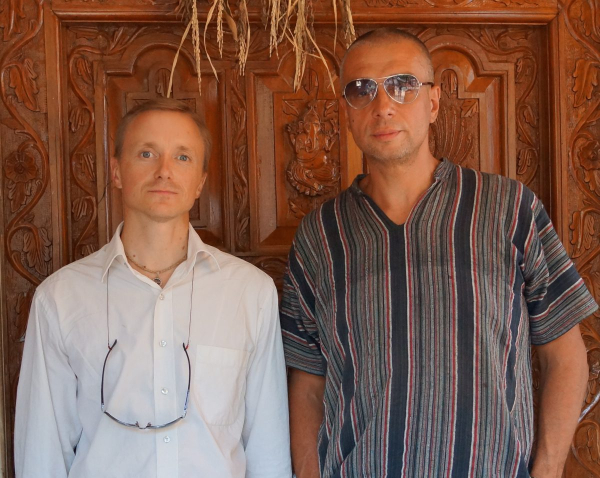
– АВТОРСКИЙ ПРОЕКТ СЕРГЕЯ ГОЛУБИЦКОГО
1 октября вышла в свет новая книга Александра Усанина, всегда вдохновлявшего меня своей непреклонной установкой на позитив и уникальным умениемСергей Голубицкий (АВТОРСКИЙ ПРОЕКТ СЕРГЕЯ ГОЛУБИЦКОГО)
#theholocaust #auschwitz #socialism #communism #redarmy
https://m.youtube.com/watch?v=oU1yAc8HiCc
#usa
#humanrights
#democracy
#faith
#health
#mexico
#blackmastodon
#indigenous
#immigration
#geopolitics
@palestine
#africa
#eu
#russia
#uk
#lgbtq
#socialism
#ireland
- YouTube
Auf YouTube findest du die angesagtesten Videos und Tracks. Außerdem kannst du eigene Inhalte hochladen und mit Freunden oder gleich der ganzen Welt teilen.m.youtube.com
>Somehow, very few people find all this disturbing, and in contrast to social media owned and operated by large corporations, many progressive, democratic, liberal minded people think and act convinced that this is better. I have no clue what goes on in most corporate social media, long ago when I used twitter I don’t remember any post of mine being removed. As far as I can tell, as long as they can sell IDs, cookies, email accounts, and advertising they couldn’t care less what you think. Communists (authoritarian/totalitarian and libertarian/democractic), anarchists of all colors and flavors, never see so much restriction, sensitivity, and censorship as exercised in #Fediverse.
Thinking that corporate social media doesn't care what you think, that there is no restriction or censorship of socialist or communist or anarchist thought, that everything is welcome so long as money is made, is thoroughly ahistorical and a blatant disregard for material reality. Thinking that, somehow, the #fediverse is a better representation of #neoliberalism than corporate social media, betrays a basic misunderstanding of what the word even means.
#socialism #communism #marxism #anarchism
#rednote #communism #marxism #socialism
